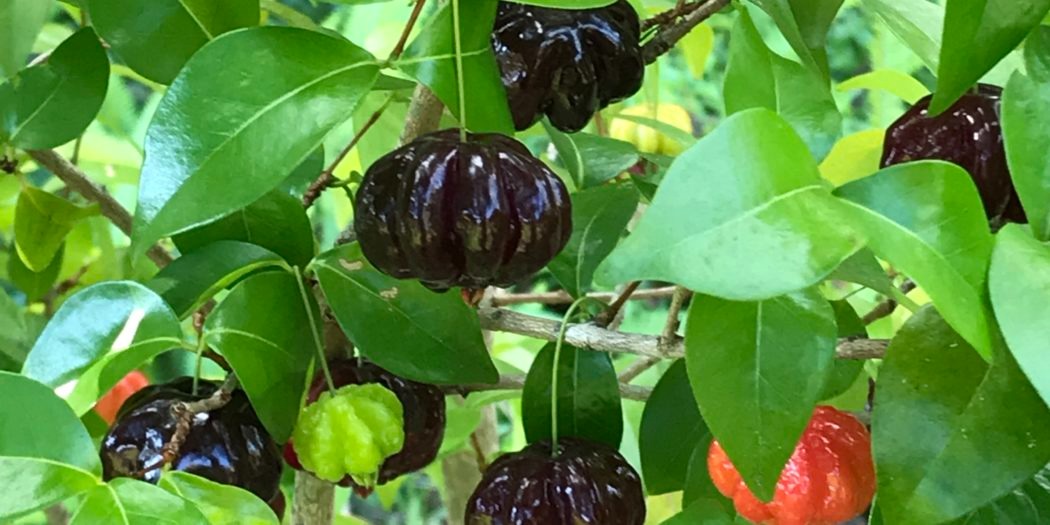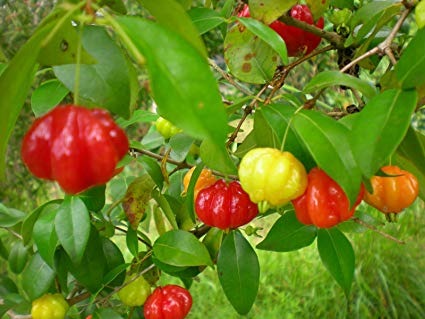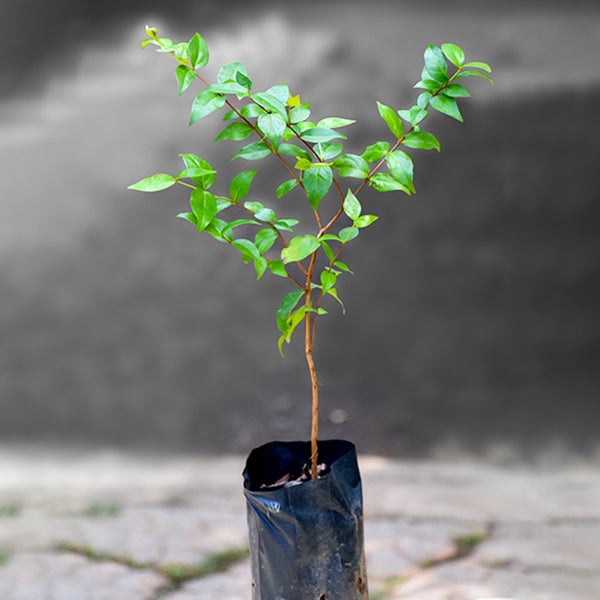Plantparadise
Black Surinam Cherry Fruit Plant
Black Surinam Cherry Fruit Plant
Couldn't load pickup availability
The Black Surinam Cherry plant, scientifically known as Eugenia uniflora, is an evergreen shrub or small tree native to South America, particularly Brazil and Suriname. It is popularly grown for its edible and flavorful fruits. Here's a description of the Black Surinam Cherry plant:
Appearance:
- The Black Surinam Cherry plant typically grows to a height of about 10 to 20 feet (3 to 6 meters), though it can be pruned to a smaller size for easier cultivation.
- The leaves are dark green, glossy, and oval-shaped, with a leathery texture. They are arranged opposite each other on the branches.
- The plant can produce small, fragrant, and white flowers, which are followed by the fruit.
Fruit:
- The fruit of the Black Surinam Cherry is the main attraction. It is a small, cherry-like berry that starts out green, turns dark red or black when fully ripe, and measures around 0.5 to 1 inch (1.3 to 2.5 centimeters) in diameter.
- The berries have a sweet and tangy flavor, with some variations depending on the cultivar.
- They are often enjoyed fresh, eaten straight from the bush, or used in various culinary applications, including jams, jellies, desserts, and beverages.
Cultivation:
- The Black Surinam Cherry plant is relatively easy to grow and can adapt to various soil types, as long as it is well-draining.
- It prefers a warm, tropical to subtropical climate but can also tolerate mild frosts.
- The plant thrives in full sun but can tolerate partial shade.
- It is often grown as an ornamental shrub in gardens, thanks to its attractive foliage, fragrant flowers, and colorful fruits.
Other Characteristics:
- The Black Surinam Cherry is known for being a prolific fruit bearer, with fruits ripening in clusters.
- It is considered a relatively low-maintenance plant, making it suitable for both experienced and novice gardeners.
- The plant can be propagated through seeds, cuttings, or air-layering.
Note: While the Black Surinam Cherry plant is generally non-toxic and safe to eat, it's essential to be cautious about consuming any plant material from the wild or cultivated sources unless you are entirely sure of its identity, as some similar-looking plants may be toxic. Always obtain plants or fruits from reliable sources and seek expert advice if you are unsure.
Materials
Materials
Shipping & Returns
Shipping & Returns
Dimensions
Dimensions
Care Instructions
Care Instructions






